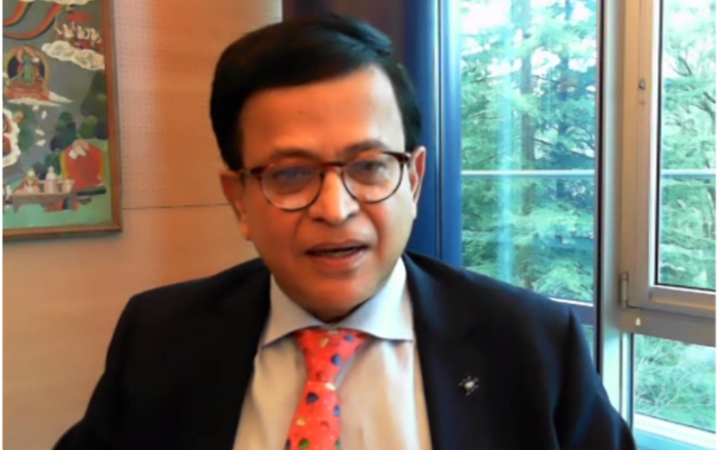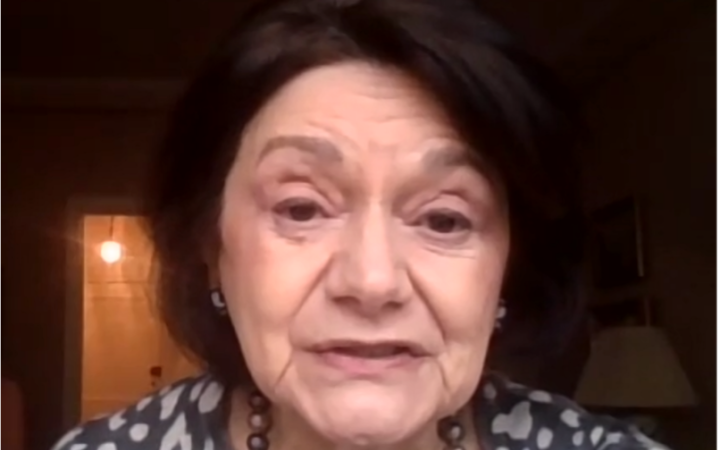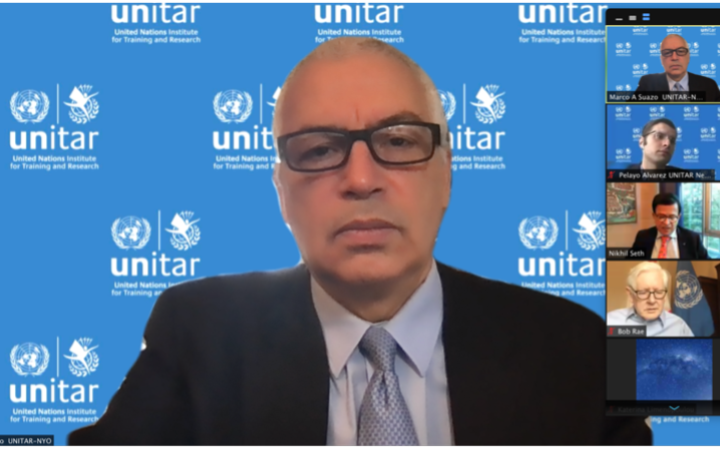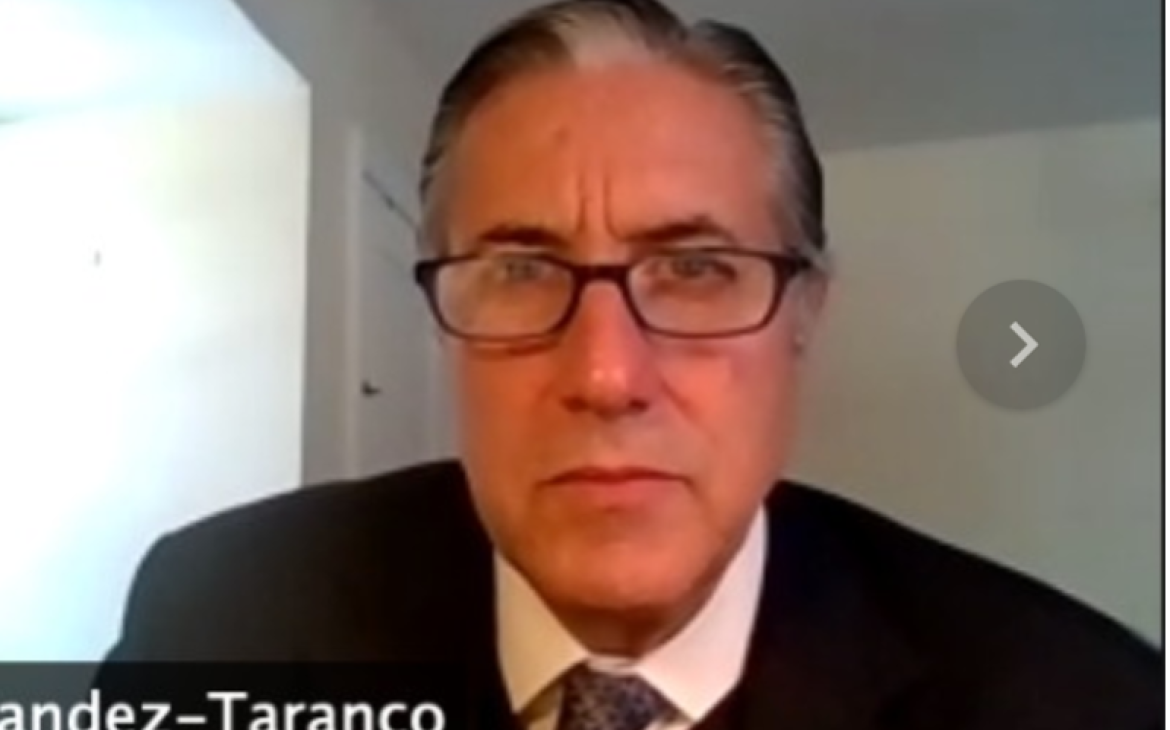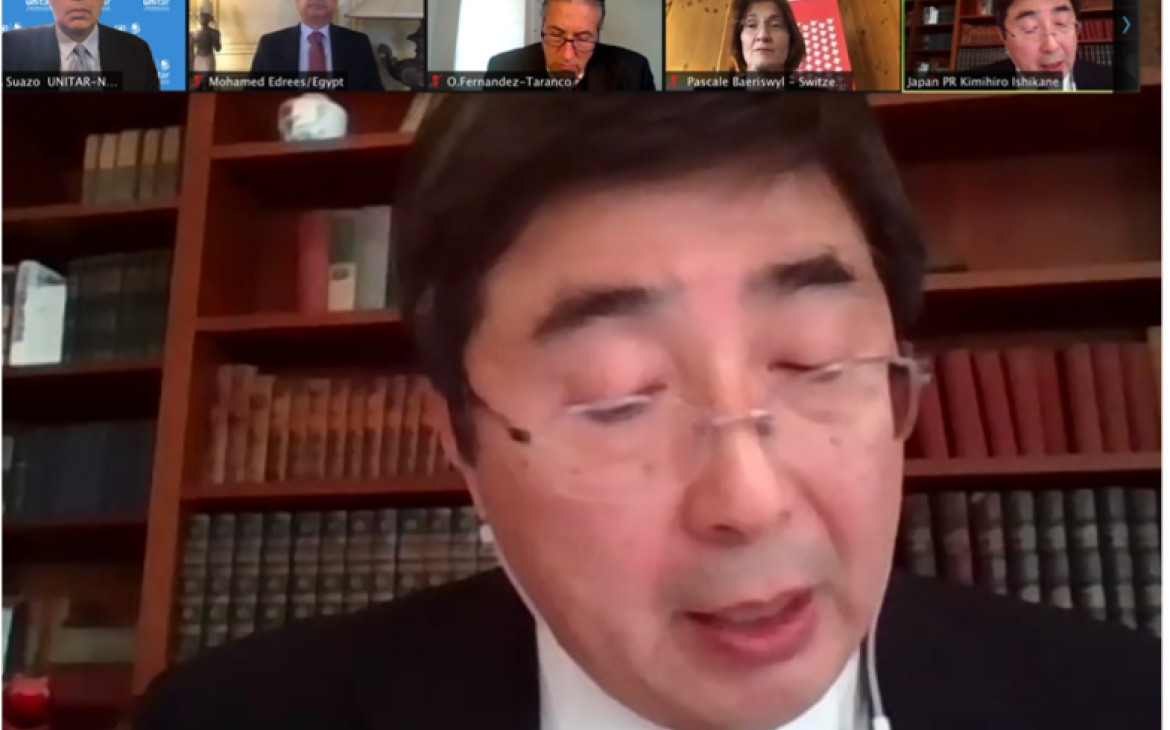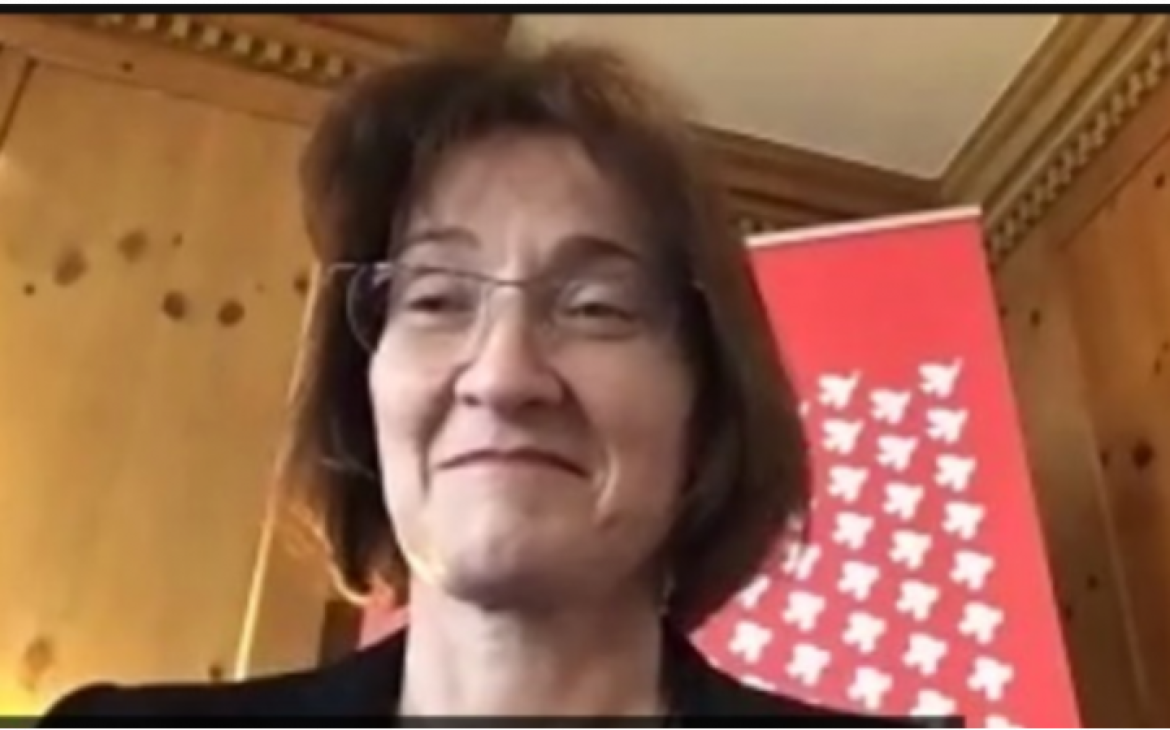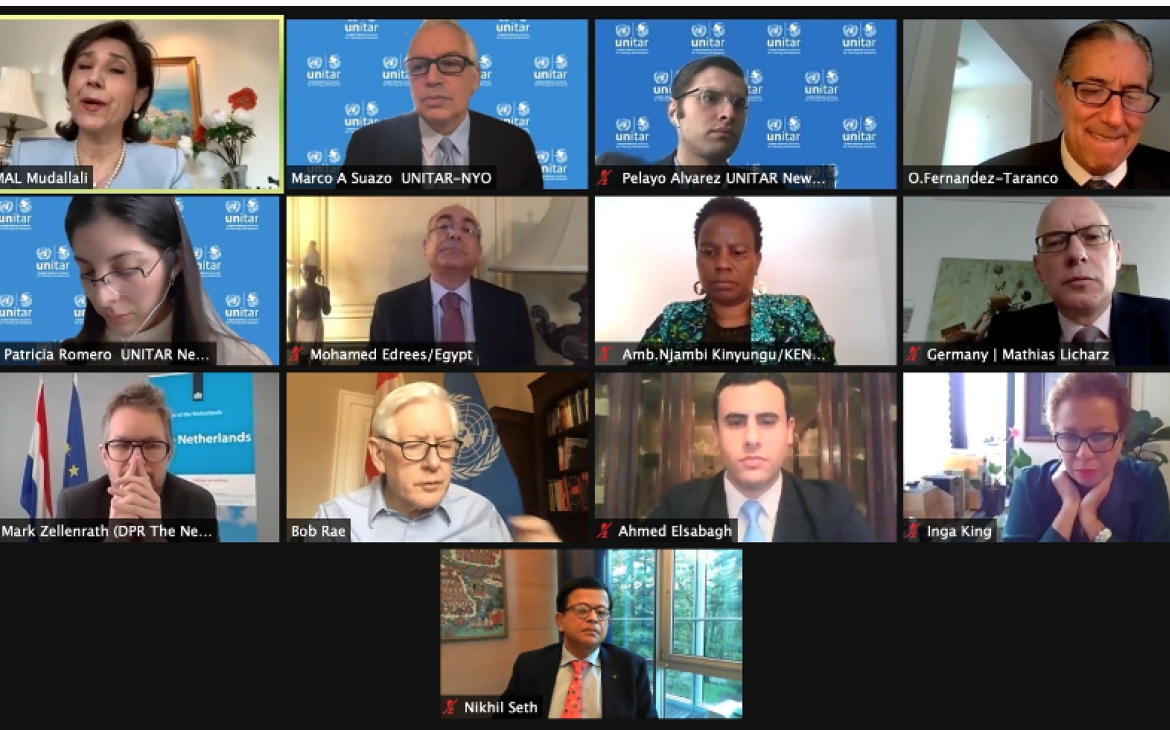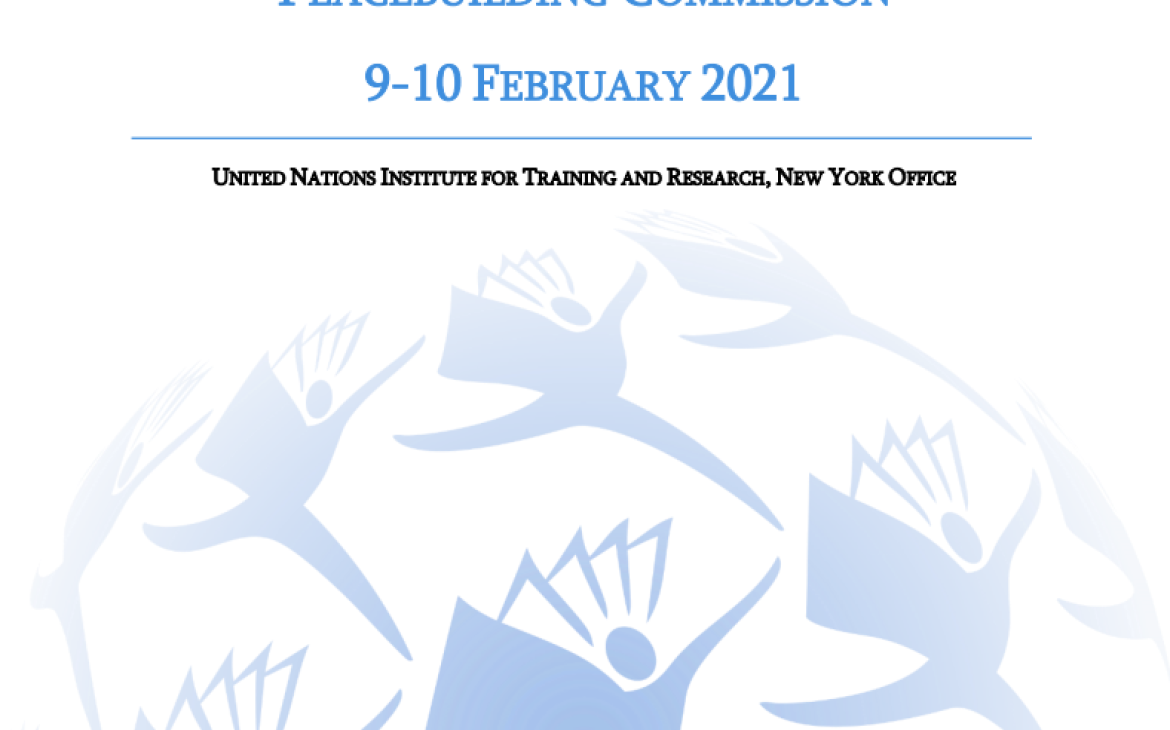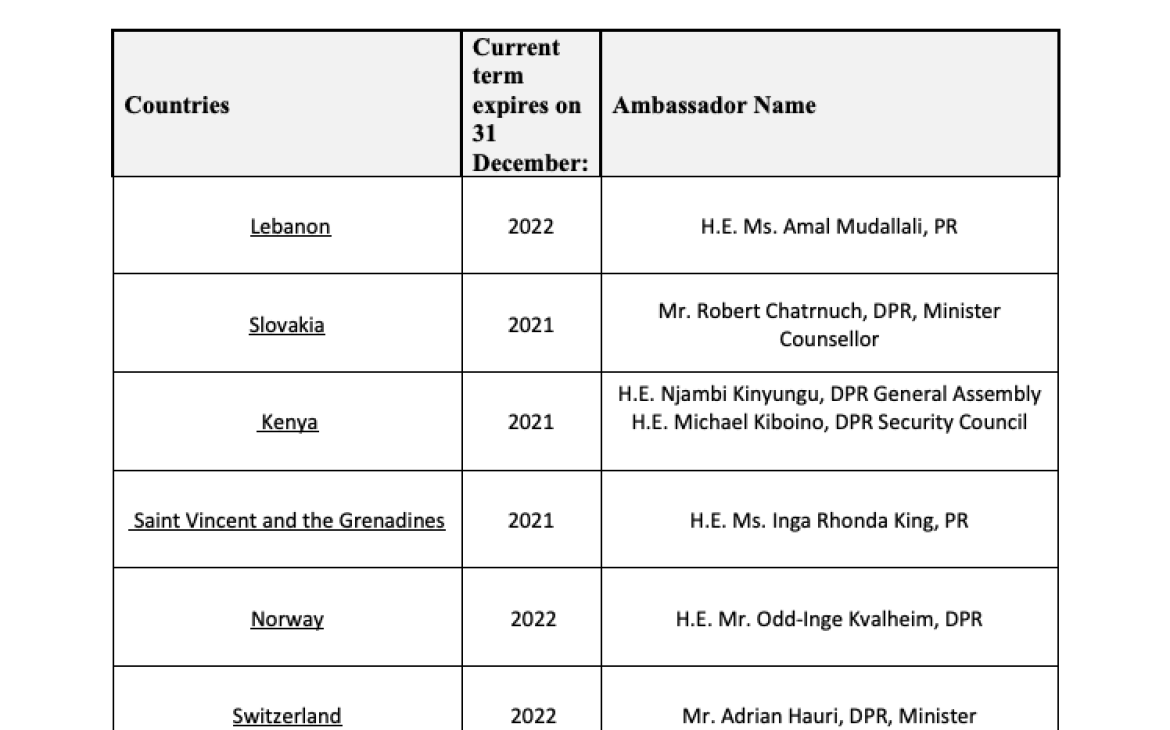10 February 2021, New York, USA (Virtual) – The United Nations Institute for Training and Research New York Office (NYO) successfully concluded the two-day virtual seminar entitled “Induction Course for the Members of the United Nations Peacebuilding Commission.
H.E. Mr. Marco Suazo, UNITAR NYO Head of Office, opened the session by thanking all participants for their attendance and additionally spoke about the goals of the Commission, especially considering the COVID-19 pandemic. Mr. Nikhil Seth, Assistant Secretary-General and Executive Director of UNITAR, followed Mr. Suazo with introductory remarks on the importance of the Commission, including his own experience in it.
Ms. Rosemary DiCarlo, Under-Secretary General for Political and Peacebuilding Affairs, provided welcoming remarks to participants, specifically reviewing the notable work the Commission accomplished in 2020. She acknowledged the impressive mobilization of over $400 million USD in support for Burkina Faso’s peacebuilding priorities, as well as recognition of other areas for peacebuilding opportunities. Ms. DiCarlo reflected on how Covid-19 has changed our lives and forced us to manage new realities, such as quarantining, social distancing and smart working, and how the PBC has adapted to this new reality. She asserted that the PBC was one of the first UN intergovernmental bodies to meet on a virtual platform. To conclude, the USG expressed that DPPA is committed to supporting the work of the PBC in 2021.
Following the introduction, the topic of conversation shifted to lessons learned from 2020 and ideas for 2021. H.E. Mr. Bob Rae, former Chair of the Peacebuilding Commission and current Permanent Representative of Canada, spoke of the flexibility the new virtual platform has provided for the Commission, while also acknowledging the limitations that come with it, such as predominantly English-language meetings and events. Ambassador Rae emphasized the inclusivity that is needed within the Commission and specifically mentioned the Commission’s gender action plan. Ambassador Rae concluded with next steps for the Commission, including working on securing sustained financial contributions and working closely with regional stakeholders on peacebuilding and development.
Next to speak was Mr. Oscar Fernandez-Taranco, Assistant Secretary-General for Peacebuilding Support. Mr. Fernandez-Taranco spoke about the productivity of the Commission in 2020 in terms of quantity and quality of engagement. He also emphasized the importance of active leadership in peacebuilding. Mr. Fernandez-Taranco then mentioned the expansion of countries and regions under Commission’s consideration, as well as thematic discussions on women, youth, peace and security. He concluded by speaking about the necessity for strengthening partnerships between regional organizations and civil society and the Commission.
An open dialogue followed, during which H.E. Ms. Amal Mudallali, Permanent Representative of Lebanon inquired about standard indicators for a country that is in need of support from the Commission. H.E. Mr. Mark Zellenrath, Deputy Permanent Representative of the Netherlands, spoke about the importance of inclusivity, financing, justice and mental health to the mission of the Commission. H.E. Mr. Mathias Licharz of Germany; H.E. Ms. Inga Rhonda King, Permanent Representative of Saint Vincent and the Grenadines; and H.E. Ms. Mathu Joyini, Permanent Representative of South Africa also joined in the discussion, seeking specific guidance on best ways of strengthening the Commissions advisory role to the Security Council and the General Assembly, while at the same time helping to meet the resource mobilization needs of the countries and regions that engage with the Commission.
The next session focused on the Commission’s country-specific and regional engagements. H.E. Mr. Mohamed Fathi Ahmed Edrees, Chair of the Peacebuilding Commission and Permanent Representative of Egypt, spoke about the link between peacebuilding and peacekeeping, as well as the scope of the Commission’s agenda and the specific countries and regions engaged. He explained that the Commission engaged with 15 country and region-specific contexts in 2020. He also mentioned the need for continued emphasis on the Commission’s advisory role in supporting transitions, as well as regional approaches to peacebuilding.
Next to speak was H.E. Mr. Yemdaogo Eric Tiare, Permanent Representative of Burkina Faso. H.E. Mr. Tiare spoke about his country’s experience with the Commission and the Commission’s longstanding commitment in support of the peacebuilding priorities of Burkina Faso. H.E. Mr. Max Hufanen Rai, Permanent Representative of Papau New Guinea, spoke and acknowledged his country’s experience with the Commission as well. Mr. Rai concluded by expressing his appreciation of the peacebuilding process and stressed the importance of the Commission.
Another open dialogue followed, in which H.E. Mr. Mike Kiboino, Deputy Permanent Representative of Kenya; H.E. Ms. Mathu Joyini, Permanent Representative of South Africa; Mr. Fred Sarufa, Deputy Permanent Representative of Papau New Guinea; and H.E. Ms. Inga Rhonda King, Permanent Representative of Saint Vincent and the Grenadines participated. The importance of appointing an informal coordination for the GA, following the example of information coordination with the Security Council, was emphasized.
The final session of the seminar focused on the Commission’s cross-cutting and thematic engagements. Mr. Oscar Fernandez-Taranco spoke on the issue of financing for peacebuilding. He addressed the need for adequate and sustained financing and acknowledged the PBC’s work in securing this financing, which will be further reinformed following the twin resolutions of 2020.
H.E. Ms. Pascale Christine Baeriswyl, Permanent Representative of Switzerland, spoke next and specifically addressed the Women, Peace and Security agenda of the Commission and the significance of Resolution 1325. She emphasized the cross-cutting nature of the Women, Peace and Security agenda, as these issues permeate through all countries. She emphasized the importance of keeping track on the implementation of the Commission’s gender strategy and concluded by asserting that the Commission was well-positioned to achieve its objectives.
Next to deliver remarks was H.E. Mr. Kimihiro Ishikane, Permanent Representative of Japan. He spoke of the importance of institution-building along with peacebuilding and further emphasized how inclusivity, transparency and accountability ensure public trust in institutions, which itself facilitates peacebuilding. He also acknowledged recent engagement on institution-building within the PBC.
H.E. Mr. Marco Suazo closed the two-day seminar by thanking its distinguished participants. The panelists also gave final concluding remarks and expressed their confidence in the Commission’s agenda for 2021.


